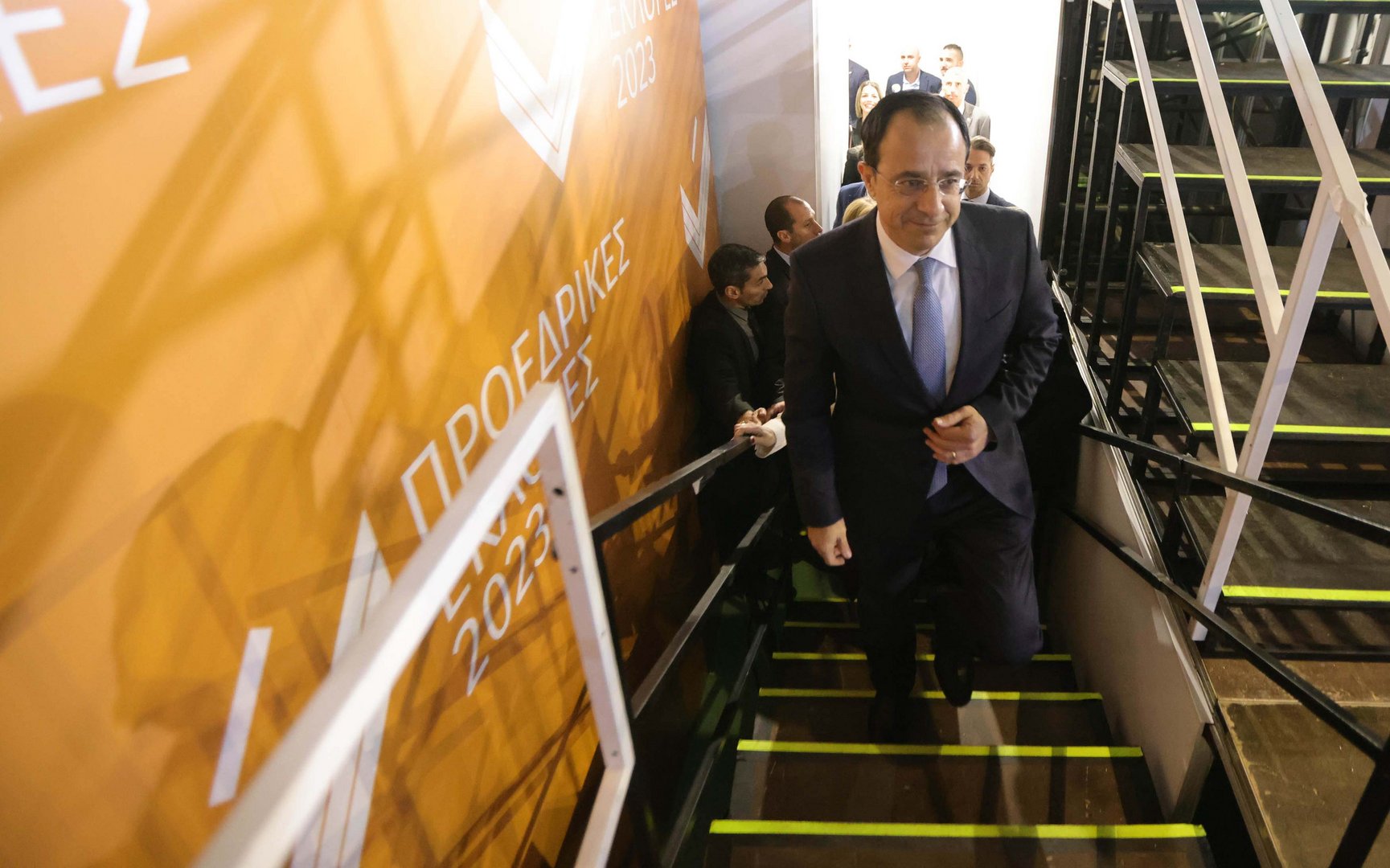Every newly elected president is entitled to a fair wind without being pounced on by the fourth estate. So congratulations are in order and good luck to Nikos Christodoulides on being elected Republic of Cyprus (RoC) president at the age of 49, the youngest since Archbishop Makarios, Cyprus’ first and best known head of state.
Some readers may be surprised to learn that Makarios was younger than Christodoulides when he became president in 1960, but that’s because Makarios’ attire made him look older than his age as well as because, unlike Makarios, Christodoulides does not wear a beard.
Makarios peaked early – he became bishop of Kition aged 35 and archbishop in 1948 when he was only 37. He was 47 when he was elected president in 1960 in an election with striking similarities to the one just won by Christodoulides – the Communist party Akel backed a non-communist independent candidate, John Clerides, just like it backed Andreas Mavroyiannis in 2023. Makarios won by a larger majority but that was because he was head of the church of Cyprus as well as a politician.
Youth is sometimes important in politics in that it can help one acquire power, but a mixed blessing in terms of what a youthful leader does with power once acquired. US President John Kennedy, who was 43 when he was elected, made a big deal of his youth in his inaugural speech in 1961 when he said rather pompously “let the word go forth from this time and place that the torch has been passed to a new generation of Americans…” Within two years he took the world to the brink of nuclear war when Cuba exercised her sovereign right to align herself with Soviet Russia and stationed nukes on her territory after being attacked by the US in the botched Bay of Pigs operation.
In 1997 a 44-year-old Tony Blair also made much of his youth with his “a new dawn has broken” victory speech, only to embark on an unlawful war on Iraq within a few years that killed and destroyed the lives of thousands in the Middle East.
The leader whose relative youth did in the end make the world a better place was Mikhail Gorbachev. He became Soviet leader in 1985 when he was 54 at a time when the Soviet Union was ruled by a gerontocracy – his predecessors Leonid Brezhnev, Yuri Andropov and Konstantin Chernenko were all old men. The Soviet Union was collapsing when he took over, but he was wise enough to disengage from Europe peacefully within five years of assuming power – for which Europe astonished the world with its ingratitude.
A new expression came into vogue when young Blair first became prime minister and was in a hurry to change Britain. We were told the new government would hit the ground running, which I associate with jumping off old red buses before they were sealed. In the old days we had a choice to get on and off buses as and when we pleased. But if you hopped off while a bus was moving, you hit the ground running because you landed at the same the speed as the bus. If it moved too fast you ended up falling on your hands, as I did once and ended up in hospital. So hitting the ground running is fine as a sign of an energetic government but it has its dangers.
Tony Blair’s first administration did proceed at speed to change the superstructure of British society. By the end of his first and most successful term he brought peace to Northern Ireland in the shape of the Good Friday Agreement, devolved power to Scotland, and his finance minister, Gordon Brown, made the Bank of England independent of government.
There were constitutional reforms abolishing hereditary peers, freedom of information was introduced, the European Convention on Human Rights was made part of UK domestic law and new Civil Procedure Rules made court proceedings more user-friendly.
The nature of politics means you think of the next time round the moment you are elected and to that end an incoming administration wants to implement its election promises. The corollary to that is, avoid an Anastasiades volte-face whereby you jettison an election pledge the moment you assume power – he reneged on a solemn election pledge not to inflict a haircut on people’s savings by proceeding to do just that within days of taking power.
Wisely the urbane Nikos Christodoulides made no pledge remotely comparable to the one Anastasiades made in 2013. He has his views and policies to match, and we should put up or shut up for a while and give the man a chance – American presidents have a 100 days to make their mark but in Cyprus a year would be fairer as it is a small island state with no global reach.
There is, however, one measure of earthquake diplomacy he could consider that transcends the Cyprus divide. On taking office he might wish conjointly or otherwise to mull over a measure requiring all buildings of a certain size in Cyprus to be freshly certified as capable of withstanding a strong earthquake of up to 10 on the Richter scale.
There is a seismic arc between Cyprus and a seamount under the sea to the south of Cyprus which is active. Given the destruction caused by the recent earthquake in southern Turkey it would be a wise precaution if – God forbid – Cyprus were struck by a strong earthquake.
Alper Ali Riza is a king’s counsel in the UK and a retired part time judge







Click here to change your cookie preferences